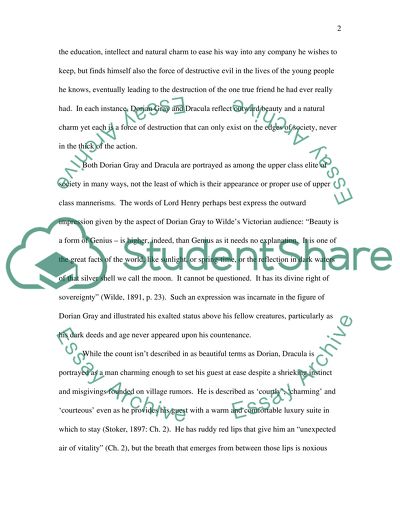Cite this document
(“Drugs and disease in Dorian Gray and Dracula Essay”, n.d.)
Retrieved from https://studentshare.org/miscellaneous/1540175-drugs-and-disease-in-dorian-gray-and-dracula
Retrieved from https://studentshare.org/miscellaneous/1540175-drugs-and-disease-in-dorian-gray-and-dracula
(Drugs and Disease in Dorian Gray and Dracula Essay)
https://studentshare.org/miscellaneous/1540175-drugs-and-disease-in-dorian-gray-and-dracula.
https://studentshare.org/miscellaneous/1540175-drugs-and-disease-in-dorian-gray-and-dracula.
“Drugs and Disease in Dorian Gray and Dracula Essay”, n.d. https://studentshare.org/miscellaneous/1540175-drugs-and-disease-in-dorian-gray-and-dracula.


